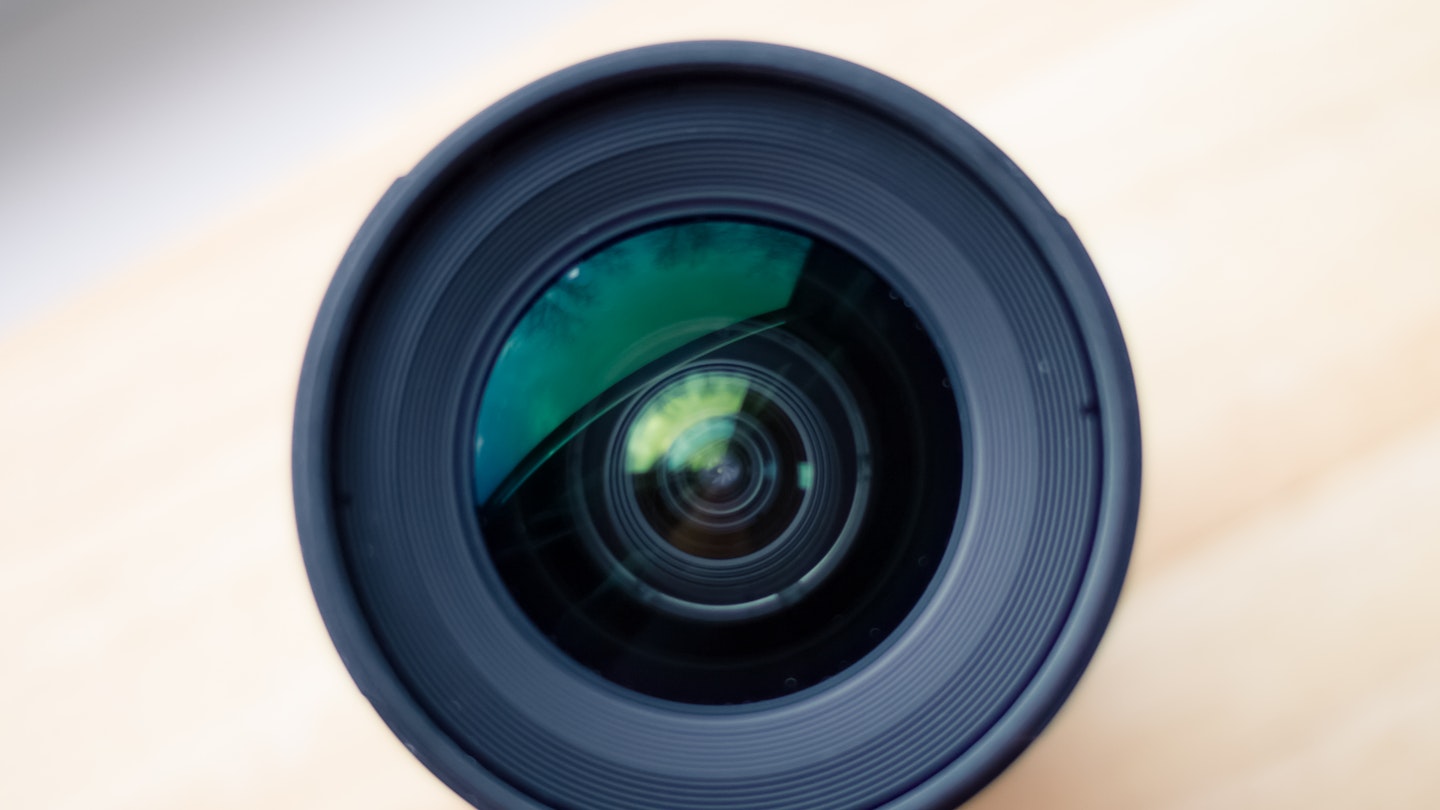If you’re eager to get closer to the action, then a telephoto lens should be at the top of your wishlist. These powerful optics are the perfect partner for sports or wildlife photography, as they allow you to zoom in tight to shoot high-impact images.
Most feature built-in image stabilisation systems to help minimise camera shake, which is more of a risk when shooting with longer focal lengths.
However, some of these larger lenses can be rather heavy, so come with a tripod socket to transfer the weight. We’ve tested 10 of the very best telephotos under £1,200 to reveal the optimum telephoto lens, and with prices starting at just £269 there’s something here to suit all budgets...
.jpeg?auto=format&w=1440&q=80)
This lens from Sigmau2019s Contemporary range is lighter and more compact than the Sports version, and is more affordable too. Itu2019s available for Nikon, Canon and Sigma bodies and works with both full-frame and APS-C DSLRs. The lens is currently bundled with a 1.4x teleconverter, which expands the focal range to 210-840mm. When you pair this with a Canon APS-C DSLR, which produces a 1.6x crop factor, you can shoot with an effective focal range of 336-1344mm u2013 enormous!
Specification
Minimum aperture: f/22
Elements: 20/14
Filter size: 95mm
Minimum focus distance: 2.8m
DxH: 105x260mm
Weight: 1930g
.jpeg?auto=format&w=1440&q=80)
This lens has a huge focal range, image stabilisation and fantastic image quality. It can be mounted onto a range of cameras and is great for general shooting and panning. At 1970g, it is very heavy though and be mindful that itu2019s not weather resistant.
Specification
Minimum aperture: f/22
Elements: 22/16
Filter size: 95mm
Minimum focus distance: 0.5-1.8m
DxH: 104x219mm
Weight: 1970g
.jpeg?auto=format&w=1440&q=80)
www.jessops.com
The Sport version of Sigmau2019s 150-600mm offers a premium build, fine-tuned features and an impressive image quality. Nestling inside the dustproof and splashproof barrel are 24 elements in 16 groups. There are two FLD (F Low Dispersion) elements and three SLD (Special Low Dispersion) elements to prevent chromatic aberration from appearing in images.
Specification
Minimum aperture: f/22
Elements: 24/16
Filter size: 105mm
Minimum focus distance: 2.6m
DxH: 121x290mm
Weight: 2860g
.jpeg?auto=format&w=1440&q=80)
This lens is very small in size and itu2019s light, it has image stabilisation and the price is very reasonable. The maximum zoom is quite short but fine if it suits your needs. The image quality isnu2019t amazing and itu2019s built for Canon APS-C only, but if thatu2019s what youu2019ve got, this is a reasonable lens. Want to know more? Read our full review of the Canon EF-S 55-250mm F/4-5.6 IS STM.
Specification
Minimum aperture: f/22-32
Elements: 15/12
Filter size: 58mm
Minimum focus distance: 0.85m
DxH: 70x111mm
Weight: 375g
.jpeg?auto=format&w=1440&q=80)
This lens has a versatile zoom, itu2019s very light and easily portable, itu2019s also weather sealed. The focusing is a little bit clunky and thereu2019s no optical stabilisation, however for the price, itu2019s a great lens. Want to know more? Read our full review of the Pentax DA 55-300mm F/4-5.8ED WR
Specification
Minimum aperture: f/22-32
Elements: 12/8
Filter size: 58mm
Minimum focus distance: 1.4m
DxH: 72x112mm
Weight: 466g

The Tamron 150-600mm is a great option for any sport and wildlife enthusiasts looking for a quality lens to deliver impressive results. Itu2019s competitively priced too, as the rival from Sigma u2013 the 150-600mm SPORT lens u2013 costs £1199 but is nearly a kilogram heavier.
Spec
Minimum aperture: f/32-40
Elements: 21/13
Filter size: 95mm
Minimum focus distance: 2.2m
DxH: 108.4mx260.2
Weight: 2010g
.jpeg?auto=format&w=1440&q=80)
Nikonu2019s 200-500mm f/5.6 is a highly competitive optic that should give users a well-built and reliable alternative to third-party super-telephotos. Like its rivals, itu2019s at its weakest when at its longest, but with excellent sharpness at 200mm, a constant aperture, and an impressive VR system, thereu2019s still an awful lot to like. Want to know more? Read our full review of the Nikon AF-S Nikkor 200-500mm f/5.6E ED VR.
Spec
Lens: Nikon AF-S 200-500mm f/5.6E ED VR
Aperture: f/5.6-32
Focusing: AF-S (Silent Wave Motor)
Min. focus distance: 2.2m
Sensor format:
FX (DX compatible)
Lens construction: 19 elements/12 groups
Diaphragm blades: 9
Filter size: 95mm
Image stabilisation: Yes
Size (DxL): 108x268mm
Weight: 2300g
.jpeg?auto=format&w=1440&q=80)
This fab lens fits both Canon and Nikon. Itu2019s impressively sharp and has optical stabilisation. It is a fraction less sharp than the Canon and Nikon equivalents but it is also much cheaper. Want to know more? Read our full review of the Tamron 70-200mm F/2.8 SP Di VC USD.
Spec
Maximum aperture: f/2.8
Minimum aperture: f/32
Minimum focus distance: 130cm
Angle-of-view: 34° - 12°
Diaphragm blades: 9
Elements/groups: 23/17
Stabilisation: Yes
Lens hood included: Yes
Tripod collar: Yes
Fits: Canon, Nikon, Sony
Filter size: 77mm
Length: 197mm
Weight: 1,470g
.jpeg?auto=format&w=1440&q=80)
If youu2019re looking for super sharp images, this lens will deliver; itu2019s extremely capable and will not disappoint you, however, this is reflected in the price-tag, which may be off-putting. Want to know more? Read our full review of the Nikon AF-S Nikkor 70-200mm F/4G ED VR.
Spec
Maximum aperture: f/4
Minimum aperture: f/32
Minimum focus distance: 100cm
Angle-of-view: 34° - 12°
Diaphragm blades: 9
Elements/groups: 20/14
Stabilisation: Yes
Lens hood included: Yes
Tripod collar: No
Fits: Nikon
Filter size: 67mm
Length: 179mm
Weight: 850g
.jpeg?auto=format&w=1440&q=80)
At 765g, the this lens is quite heavy but we found it pleasantly sturdy and robust. The zoom is smooth and the Low Disperson and Extra Low Dispersion lens elements help to correct chromatic aberration and is also fitted with an Ultrasonic Silent Drive (USD) motor, as well as Tamronu2019s Vibration Compensation (VC) mechanism to reduce the effects of camera shake.
Spec
Maximum aperture: f/4-5.6
Minimum focus distance: 1.5m
Filter size: 62mm
Weight: 765g
What to read next:
Subscribe to the What’s The Best Newsletter to keep up to date with more of the latest reviews and recommendations from Kirk and the rest of the What’s The Best team.
Kirk Schwarz is a tech-addicted photographer with over a decade's experience; Kirk’s used to putting new gear through extreme field testing. He's previously written for Practical Photography.



